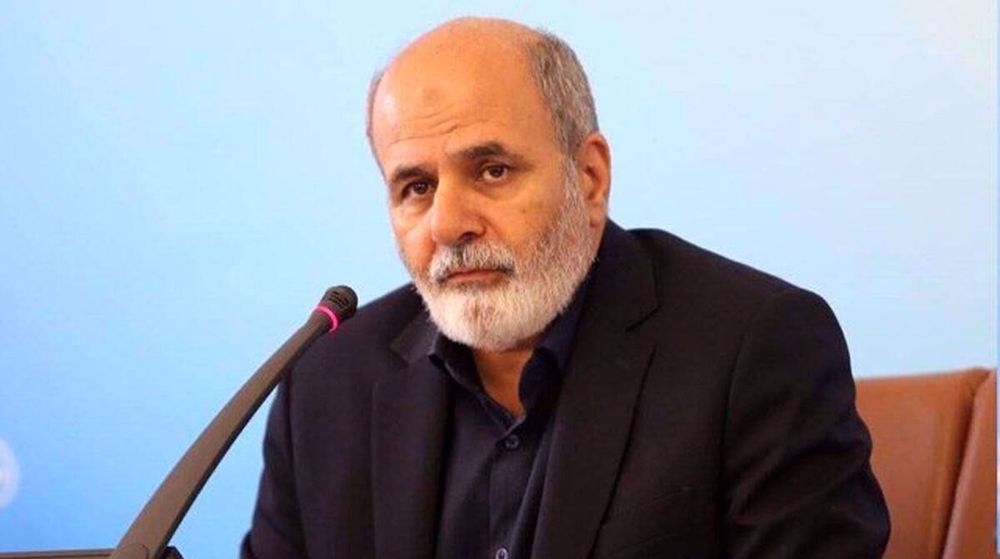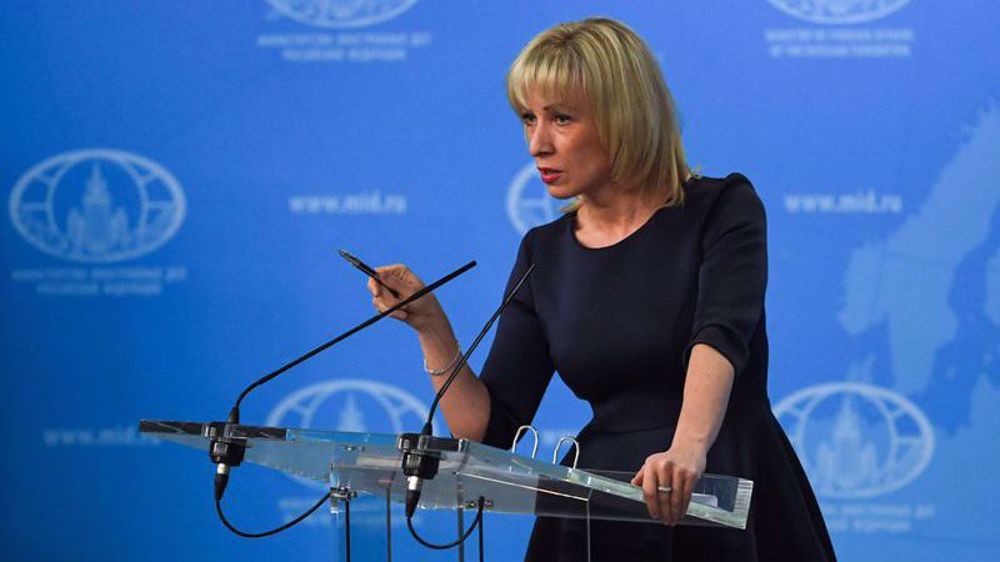EU supports Iran nuclear deal, vows full commitment
European Union foreign ministers have reaffirmed their support for the historic nuclear agreement between Iran and the P5+1 group of countries, saying the accord is working and is a key part of non-proliferation efforts.
The union’s foreign ministers held a closed-door meeting, chaired by EU foreign policy chief, Federica Mogherini, on the best way to proceed on the Iran issue in Luxembourg on Monday. The meeting came three days after US President Donald Trump refused to formally certify that Iran was complying with the deal, known as the Joint Comprehensive Plan of Action (JCPOA), and warned that he might ultimately terminate the agreement.
While Trump did not pull Washington out of the nuclear deal, he gave the US Congress 60 days to decide whether to reimpose economic sanctions against Tehran that were lifted under the pact. Reimposing sanctions would put the US at odds with other signatories to the accord and the European Union.
The top EU diplomats urged US lawmakers not to reimpose sanctions on Tehran and warned against the serious consequences for regional peace of a failure to maintain the international agreement backed by the UN Security Council.
“As Europeans together, we are very worried that the decision of the US president could lead us back into military confrontation with Iran," German Foreign Minister Sigmar Gabriel told reporters.
After the meeting, the foreign ministers issued a statement, expressing their determination to fully implement the international nuclear agreement.
“The EU is committed to the continued full and effective implementation of all parts of the JCPOA,” the statement said.
It added that the International Atomic Energy Agency (IAEA) had certified eight times that Iran was living up to its commitments under the JCPOA. The deal has also been certified twice in the United States since Trump took office.
"At a time of acute nuclear threat, the EU is determined to preserve the [agreement] as a key pillar of the international non-proliferation architecture,” the EU foreign ministers noted.
They added that they saw Trump's refusal to certify the JCPOA “as being in the context of an internal US process.”
Mogherini said the ministers "understand the politics around it," but she noted that "what is of crucial importance for us is that our European security interests are taken into consideration."
“Non-proliferation is a major element of world security and rupturing that would be extremely damaging. We hope that Congress does not put this accord in jeopardy,” French Foreign Minister Jean-Yves Le Drian told reporters.

Dutch Foreign Minister Bert Koenders also said the agreement was about “the safety of the world," adding, "I hope also that the US Congress will realize this and take the right decisions.”
During their Monday meeting, the EU ministers also discussed Iran's ballistic missile program but emphasized that the immediate focus had to be saving the landmark deal.
The EU foreign policy chief said the ministers held no talks about new sanctions on Tehran over its ballistic missile program.
Iran and the five permanent members of the United Nations Security Council – the United States, France, Britain, Russia and China – plus Germany signed the nuclear agreement on July 14, 2015 and started implementing it on January 16, 2016.
Under the JCPOA, Iran undertook to put limitations on its nuclear program in exchange for the removal of nuclear-related sanctions imposed against Tehran.
The JCPOA is regarded as the most significant diplomatic success for the 28-nation bloc in several decades.
In a telephone conversation on Sunday, British Prime Minister Theresa May and German Chancellor Angela Merkel agreed that the two countries remained firmly committed to the deal.
In a related development on Sunday, British Foreign Secretary Boris Johnson threw his country’s weight behind the nuclear deal with Iran.
Johnson, who was speaking during a telephone conversation with Iran’s Foreign Minister Mohammad Javad Zarif, reiterated his country’s full support for the JCPOA.
Mogherini also stated that she was planning to travel to Washington early next month to try to muster support for the nuclear deal with Iran.
She said she would “be in Washington in early November” to urge US lawmakers not to walk away from the 2015 deal.
VIDEO | Press TV's news headlines
Israel launches new strikes against Syrian defense facilities
Netanyahu orders Israel negotiators to continue in Doha
Israeli regime strikes buildings in Lebanon’s south
Suicides among Israeli forces surge amid Gaza war
Gen. Soleimani turned threats into opportunities and fortified resistance axis
Houthi: General Soleimani thwarted US conspiracies in West Asia
Islamic Jihad prevents Israeli captive from taking own life












 This makes it easy to access the Press TV website
This makes it easy to access the Press TV website